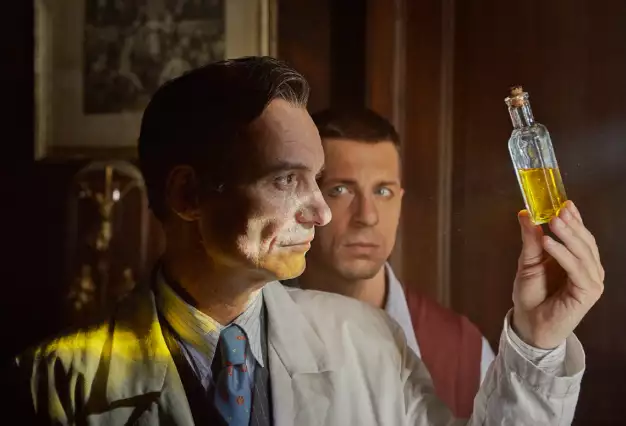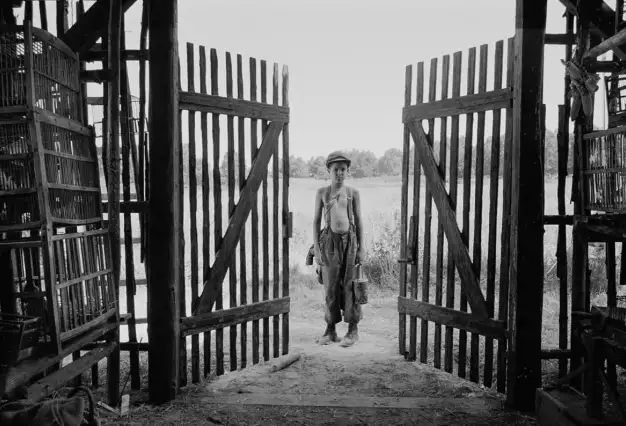
15 March 2019
Czech Pop Comedies Lead Box Office; Festivals Boast Originality, Authenticity
Czech Pop Comedies Lead Box Office; Festivals Boast Originality, Authenticity

Eighty Czech films vied for domestic eyeballs last year, drawing 3.4 million
moviegoers to theaters. As in past years, the biggest box-office draws were comedies aimed at Czech audiences, while the films that represented the country at festivals abroad were not big commercial hits. Which films made it at home, which found success abroad, and what exciting projects are underway right now?
Article by Hedvika Petrželková, Markéta Šantrochová for Czech Film Magazine / Spring 2019
The top five rungs on the 2018 box-office chart, far above the competition, were pop and satirical comedies and children’s movies. The most successful Czech film of 2018 was the comedy What Men Long For, directed by Rudolf Havlík. More than half a million people went to see this movie, about a cynical chauvinist who one day wakes up in a woman’s body.
In second place, with 348,000 tickets sold, was the comedy Patrimony, by Jiří Vejdělek, the seasoned director of such popular films as Men in Hope and Women in Temptation.
Third and fourth spots went to “fairytale movies,” a phenomenon typical for the Czech Republic, with its long tradition of feature-length fiction films made for parents and children. Devilry, by controversial director Zdeněk Troška, who is known for the pulp series Babovřesky, drew 340,000 viewers. The fourth most popular Czech film of 2018 was The Magic Quill, marking another big success for versatile director Marek Najbrt. Using nearly the same team of screenwriters, Najbrt also had a boxoffice hit with the political satire President Blanik, a feature- length version of the series The Blanik Office, which streams on Seznam TV.
International Achievements: Flies and Other Insects
And which Czech films were best received in foreign markets and festivals? One of last year’s most successful films was a surrealist freak show, combining animation with feature film, from a master of the genre: Insect, by Jan Švankmajer. After premiering at the IFF Rotterdam, the film, which the director says will be his last, appeared at a number of other foreign festivals to a largely positive response. Another feature film that made a good impression at international festivals was the drama Winter Flies, the story of two boys coming of age, directed by Czech young talent Olmo Omerzu. The film, which the Czech Republic put forward as its Oscar submission, won the award for Best Director at the Karlovy Vary IFF and screened at the Toronto festival, the BFI London, the Cinekid festival of children’s films, and others. Another talented young director who has seen significant success is Adam Sedlák, whose feature debut, Domestique, a psychological thriller about a top cyclist, was selected for the main competition at the Karlovy Vary IFF. And Ondřej Novák and Jiří Havlíček saw their short directing debut, Reconstruction, introduced in the competitive section of the prestigious Locarno Festival, Pardi di domani. Produced by Dagmar Sedláčková (MasterFilm), Reconstruction is the compelling story of a boy who has committed a terrible crime.
Coproductions and Documentaries: An Easier Way to Reach the World
Coproductions, too, continued to thrive last year. The Romanian drama Touch Me Not, which involved Czech producers PINK, took the Golden Bear at the Berlinale, where the Slovak-Czech film The Interpreter, by director Martin Šulík, also screened. Jiří Menzel, the legendary director of the Czechoslovak New Wave, who won the Berlinale Kamera Award in Berlin, played one of the main roles. Another film to get a good reception at the Berlinale was the Czech documentary When the War Comes, from director Jan Gebert. As with Touch Me Not, the film was produced by PINK, in cooperation with HBO Europe and the Croatian company Hulahop.
Two Czech documentaries were selected to be screened at the Hot Docs Canadian International Documentary Festival, as part of a new program called the Changing Face of Europe, initiated by European Film Promotion: The Russian Job, by Petr Horký, and The White World According to Daliborek, Vít Klusák‘ s stylized portrait of a Czech neo-Nazi.
The international competition of Visions du Reel hosted the world premiere of the Latvian-Czech coproduction documentary D Is for Division, directed by Dāvis Sīmanis, produced by Ego Media and Produkce Radim Procházka.



